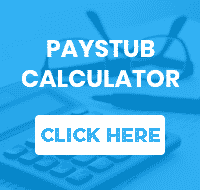If you’re wondering how to get a paycheck stub if you work under the table, the answer is simple: there are several methods to obtain proof of income. This can be anything from using direct deposit to utilizing reputable payroll software.
At Check Stub Maker, we understand the challenges faced by those working in cash-based jobs. As experts in the payroll process, we can help you create verifiable and accurate paystubs that meet your financial needs.
In this article, we’ll explore the legality of under-the-table payments, discuss why they occur, and outline the potential penalties.
We’ll also provide alternative paystub to account solutions in nine effective ways to show proof of earnings when you get paid in cash.
Let’s dive in!
What this article covers:
- Is Paying Employees Cash Under the Table Legal?
- 9 Ways to Show Proof of Income If Paid Under The Table
Is Paying Employees Cash Under the Table Legal?
Paying employees cash under the table is illegal because it involves compensating workers without properly documenting their wages.
Based on our observations, many employers resort to this method to avoid taxes and other legal obligations.
However, it’s important to understand that both employers and employees can face serious consequences for engaging in this unlawful practice.
While cash payments themselves aren’t illegal, failing to report your salary and pay taxes certainly is.
Employers are still required by law to maintain precise payroll records, withhold taxes, and supply employees with proper paperwork of their earnings.
Why Does Paying Employees Cash Under The Table Happen?
Drawing from our experience at Check Stub Maker, we’ve found that paying employees cash under the table often occurs for various reasons:
- Cost-Cutting: Employers often aim to evade financial obligations like Social Security, Medicare, and unemployment taxes, reducing overall expenses. This also allows them to bypass regulatory costs such as workers’ compensation insurance and overtime pay.
- Simplicity: Cash payments can facilitate hiring in high-turnover or temporary positions, where formal payroll systems and contracts might be viewed as cumbersome and costly by employers.
- Hiring Undocumented Workers: Employers may use cash payments to bypass labor laws, minimum wage requirements, and regulatory compliance. As such, they wilfully exploit workers’ undocumented status to avoid legal consequences.
- Employee Requests: Workers might request cash payments to avoid reporting income, maintain government assistance, or for personal convenience, further incentivizing employers to pay under the table.
While these reasons may seem compelling on the surface, the risks far outweigh any perceived benefits and we strongly advise that you avoid cutting corners when it comes to your money-related processes.
Penalty For Employees Being Paid Under The Table
Employees who accept under-the-table payments may face significant penalties.
Our research at Check Stub Maker indicates that these consequences can include owing the IRS unpaid income taxes, plus interest and penalties.
Additionally, unreported wages can jeopardize eligibility for essential benefits such as Social Security, Medicare, and unemployment assistance.

Without proper paperwork of your salary, it can become increasingly difficult to prove earnings. This makes it challenging to secure loans, rent apartments, or qualify for credit cards or governmental assistance which we discussed above.
Lastly, failing to report income is classified as tax evasion, which is a serious offense that can lead to legal troubles, including fines or imprisonment.
It’s crucial to understand these risks and take steps to protect yourself, even if your employer insists on cash payments.
At Check Stub Maker, we offer a simpler and verifiable solution with our paystub maker so you can have accurate financial documentation of your wages when you need it most.
9 Ways to Show Proof of Income If Paid Under the Table
If you’re struggling with how to show proof of income without a pay stub, don’t worry.
There are several methods you can use to demonstrate your earnings, even if you’re paid in cash.
1. Request A Pay Stub From Your Employer
The first step is to ask your employer for proper paperwork. Explain that you need check stubs for various purposes, such as applying for loans or renting an apartment.
Many employers may be willing to provide this documentation once they understand its importance.
2. Create Your Own Pay Stub
If your employer can’t or won’t give you pay stubs, you can create your own using online payroll tools.
At Check Stub Maker, we can manage calculations related to tax withholdings, ensure compliance with tax laws, and generate precise financial documentation when you create pay stubs online.
This can be an effective way to get check stubs if you getting paid cash.

3. Utilize Your Tax Documents
Our findings show that tax paperwork can serve as proof of salary. If you’ve been reporting your cash earnings on your tax returns, you can use these documents to verify your wages.
For instance, forms like the 1040, W-2 (if applicable), or Schedule C for self-employed individuals can all serve as valid proof of income.
4. Get A Proof Of Income Letter
Another option is to request a proof of income letter from your employer.
This letter should detail your:
- job title
- length of employment
- average earnings
While not as comprehensive as a pay stub, it can still serve as valuable paperwork for many purposes.
5. Use Your Employment Contract
If you have a written employment contract, this can also serve as proof of wages. While it may not show your actual salary, it can still verify your employment status and agreed-upon compensation by your employer.
Our investigation at Check Stub Maker demonstrated that this can be particularly useful when combined with bank statements showing regular deposits.
6. Hire Contractors
When appropriate, you could employ independent contractors who handle their own tax responsibilities. This can simplify your payroll processes and reduce any administrative burdens.
7. Implement A Time Tracking System
You can utilize time tracking tools to accurately monitor employee hours. Our research indicates that this can ensure precise payment and maintain comprehensive records for audits.
8. Offer Direct Deposit
Offering direct deposit as a transactional option provides a secure, traceable method for employee payments, guaranteeing transparency and compliance with financial regulations.

9. Educate Yourself
It’s important to familiarize yourself with tax obligations, labor laws, and payroll procedures. This way, you can avoid the pitfalls of under-the-table payments so that you and your employees meet all legal requirements for your business transactions.
By adopting these practices, employers can protect themselves and their employees while maintaining legal and ethical business operations.
Conclusion
In this article, we discovered that there are several ways showing you how to get a paycheck stub if you work under the table.
Remember, proper record-keeping is crucial for your monetary well-being and is more effective than cutting corners with your financial documents.
If you need help creating accurate and professional pay stubs, check out our pay stub creator.
At Check Stub Maker, we’re here to simplify your payroll process and ensure you have the legitimate paper trail you need.
If you want to learn more, why not check out these articles below:
- Where Do You Find Your Electronic Check Stub If You Use Money Card
- How to Read a Pay Stub Direct Deposit
- What Is STD on Paystub?
- What Is RSU Offset on Paystub?
- What Is ESPP on Paystub?
- What Is EIT on Paystub?
- What Is EWW on a Paystub?
- What Is PAC on My Paystub?
- What Is Annuity on a Check Stub?
- What Is PA-HAT5 on Paystub?
- What Is Life TB on Pay Stub?
- What Is NML on Paystub?
- What Does FSA Stand for in My Paystub?
- What Does PTO Stand for on a Pay Stub?
- What K Stands for in Pay Stubs




